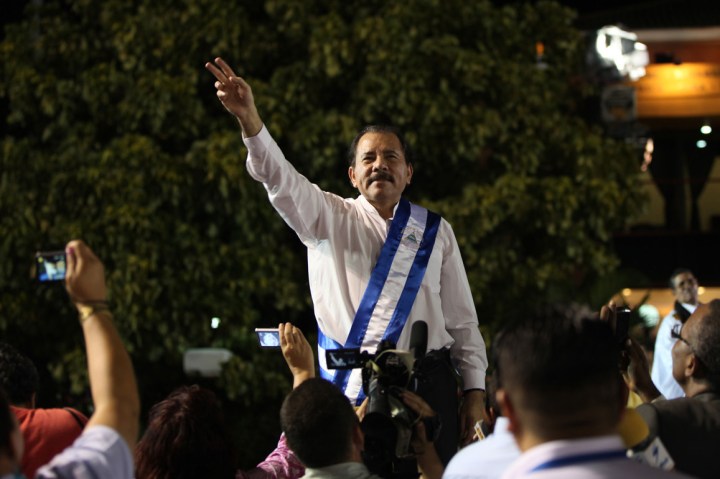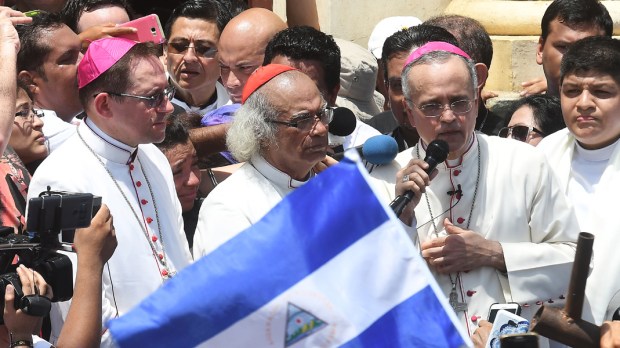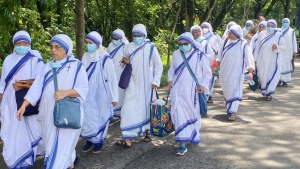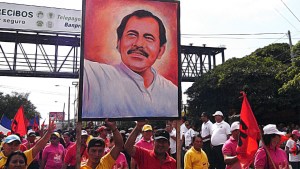In less than four years, the Catholic Church in Nicaragua has suffered 190 attacks and desecrations, including a fire in the Managua Cathedral, as well as persecution of the clergy under the Daniel Ortega regime. Earlier this month, the Missionaries of Charity were expelled from the country. The regime alleged that the missionaries are not accredited “by the Ministry for the Family to function as a nursery-center for childhood development, home for girls, and home for the elderly,” nor “do they have an operating permit from the Ministry of Education to provide remedial education for students” and that their “financial statements reported to the Ministry of the Interior don’t agree” with other documents presented for review.
Molina Montenegro’s report
A report elaborated by Martha Patricia Molina Montenegro, a member of the Observatorio Pro Transparencia y Anticorrupción called Nicaragua: A Persecuted Church? (2018-2022), shows the Catholic Church has been systematically targeted by Ortega’s regime, which has unleashed an “indiscriminate persecution against bishops, priests, seminarians, religious, lay groups and everything and everyone who has a direct or indirect relationship with the Catholic Church.”
The report focuses on the social-political crisis broke out in April 2018 in Nicaragua. Then, demonstrators took the streets to protest a series of reforms the Ortega regime implemented in the social security system, increasing taxes and decreasing benefits. The government responded violently to these demonstrations, leaving at least 355 dead, according to the report. Montenegro explains that, before that April, abuses against the church were sporadic. But after the demonstrations, hostilities increased:
“The offensive, threatening language of the presidential couple against the Catholic hierarchy became more and more evident and frequent; and the actions of some public institutions against the charitable work of the church increased,” Montenegro explains. “Before President Ortega took office, these kind frontal attacks against religious institutions did not take place.”
The attacks, by the numbers
Montenegro’s report explains the attacks against the Catholic Church include a mob storming Managua’s Cathedral, death threats against Nicaraguan priests, and the desecration of different churches. In 2019 alone, the church suffered 48 direct attacks, including death threats against the auxiliary bishop of Managua, Silvio José Báez Ortega, who was exiled. The 40 attacks that took place in 2020 included a Molotov attack against the Managua Cathedral. During 2021, another 35 attacks were recorded, including desecrations and different robberies in churches, and direct attacks from the president Daniel Ortega against bishops and Catholic priests, whom he accuses of plotting and orchestrating a coup d’état.
So far, in 2022, 21 attacks have already been registered. Especially important are the political and police harassment of Matagalpa’s Bishop, Rolando José Álvarez, and expelling the Missionaries of Charity.
Who is Ortega?
José Daniel Ortega Saavedra has been serving as President of Nicaragua since 2007. This is far from being his first time leading the country. He served as the coordinator of the Junta of National Reconstruction from 1979 to 1985 and took office as president from 1985 to 1990. Fidel Castro aside, Ortega is one of longest-serving non-royal rulers in the world and the longest serving non-royal leader in the Americas.
In the 1984 Nicaraguan general election, Ortega won Nicaragua’s presidential election as the candidate of the Frente Sandinista. A self-labeled Marxist–Leninist, Ortega implemented a series of left-leaning reforms across Nicaragua, but gradually shifted to a more moderate pro-business policy later, and even tried to build alliances with the Catholic Church, adopting a series of pro-life policies.

Ortega was defeated in the 1990 Nicaraguan general election by Violeta Chamorro but won the presidency again back in 2006. After creating strong alliances with other Latin American caudillos (the former Venezuelan President Hugo Chávez in particular), Ortega’s administration became increasingly anti-democratic. Some of Ortega’s own former revolutionary allies ended up comparing him to Somoza, the very same president they themselves had overthrown.
A month after the demonstrations in April 2018, Amnesty International and the Inter-American Commission on Human Rights of the OAS reported that Ortega “had engaged in a violent oppression campaign against protesters in response to the anti-Ortega 2018–2021 Nicaraguan protests.”
Repression against his political opponents and the Catholic Church increased yet again in 2021, with the jailing of most of his potential rivals (and former allies) in the 2021 Nicaraguan general election. In that very same year, Ortega’s administration cancelled the operating permits of six U.S. and European NGOs.
After Ortega’s 2021 reelection, President Joe Biden banned him from entering the United States.



